As a child, Emmanuel Katongole remembers going into the forest near his home in Uganda to draw water from the spring and collect firewood for cooking.
Now a diocesan priest who has taught theology and peace studies for a decade at Notre Dame, he has worried upon every return home about the intense deforestation destroying his native land. In a country where more than half the population is under age 20, he knew that young people moving to the cities lacked opportunities and needed firewood, leading to rampant tree cutting.
“The cry of the earth and the cry of the poor’ go hand in hand. You cannot just deal with one; they have to be dealt with together.”
But it wasn’t until reading Pope Francis’ encyclical Laudato si’ that Father Katongole envisioned a solution that uses education to address both problems — protecting the environment and providing economic opportunities. He joined with several colleagues and the local Catholic Church to found Bethany Land Institute (BLI) in a rural area 25 miles north of the capital city of Kampala.
“We were feeling this connection, but we were not able to articulate it until we read Laudato si’,” said Father Katongole, who has dual appointments in the Department of Theology and the Kroc Institute for International Peace Studies in the Keough School of Global Affairs. “‘The cry of the earth and the cry of the poor’ go hand in hand. You cannot just deal with one; they have to be dealt with together.’
“I read that and thought this is exactly what we need to be. An education program that cultivates a distinctive way of looking at things — the mindset, the lifestyle and the spirituality. That helped us to discover our vision, our mission.”
BLI, a two-year residential agricultural institute teaching integral ecology, held its public launch and first graduation ceremony in late July, officially kicking off its goal of spreading a better way to practice farming and forestry that the founders hope its graduates will branch across the country. One of its most dramatic objectives is to plant a million trees by 2050.
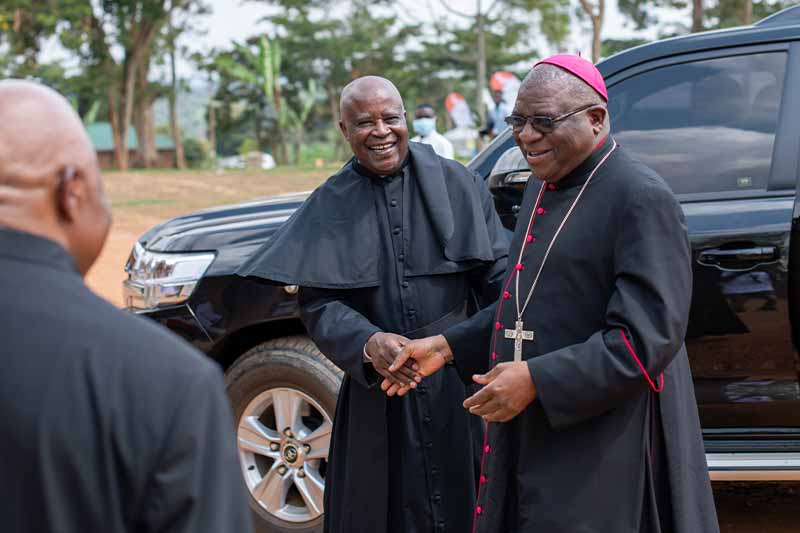
A delegation of academic leaders from Notre Dame joined Kampala Archbishop Paul Ssemogerere, government officials, BLI staff and more than 1,000 guests for the ceremony. Twenty-one graduates called “caretakers” were commissioned to bring what they learned home to their rural villages.
The seed may already have taken root.
Alice Nanfuka came to BLI in 2021 after running away from a job where her employer abused her. She didn’t have much interest in farming but immediately found new hope and soon recruited her sister Immaculate Nambirige to join her.
On their mother’s farm about four miles from BLI, the sisters said what they have learned has changed their lives. They used to be afraid of chickens. Their mother sprayed her vegetables with pesticides and fertilizer. The family discarded empty water bottles on the ground.
“She was not a girl who liked to dig,” Immaculate said of her sister Alice. “But she came back and she was digging. So I went to BLI and now I dig and think agriculture is very important. I learned so many things, like recycling. We used to burn plastics, but now I know how to make a greenhouse from the plastics.”
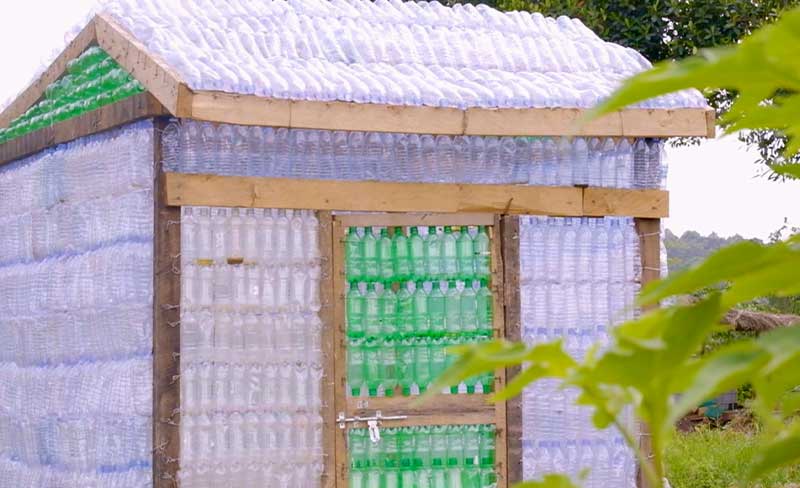
Their mother’s neighbors asked why the family plants trees, collects plastic bottles, uses organic fertilizer and builds gardens of different vegetables.
“We teach them the impact to our environment,” said Alice. “We teach them about organic vegetables and how to protect them without spraying. We brought them trees to plant. Some are friends with my mom. Some can’t accept what we are doing. But she will go on telling them what we learned. She’s an agent of change.”
A Vision Implants
Father Katongole had previously focused on initiatives related to his peace studies background, founding a nonprofit working toward reconciliation.
“I had worked with the issue of violence in Africa, especially in the wake of the genocide in Rwanda,” he said. “And I have made the argument that the forms of politics that we have in Africa need to be interrupted with a fresh vision of peace.”
In 2012, nearing his 25th anniversary as a priest, Father Katongole told his friend, fellow priest Father Cornelius Ssempala, that he was tired of fighting over deforestation and wanted to buy some land to plant trees. A third fellow priest, Father Tony Rweza, argued that the challenges in Uganda were very complex — any new projects needed to have an economic dimension to be sustainable.
With a population that nearly doubled in 20 years, Uganda had so many young people and few opportunities — about 70 percent of youths are unemployed. Civil wars and the AIDS epidemic had wiped out most of a generation, leaving behind a disproportionate number of children but little experience in how to cultivate farms.
“We educate young people that the village is a place of backwardness, very primitive,” Father Katongole said. “If you want to succeed, go to the city, but they never end up in the city. They end up in the slums where the living conditions are even worse. But they don’t feel they can go back to the country because they would be seen as failures. BLI wants to change that mindset.”
In 2015, Pope Francis published Laudato si’ and clarified their vision. The three founding priests decided they wanted to start a farm and forest around the three E’s: ecology, economics and education.
Bethany Stories
Father Katongole went on a sabbatical trip to the Holy Land and became interested in Biblical stories about the town of Bethany. He learned that Bethany was a small village where outcasts — lepers and the poor — lived because they could not afford Jerusalem.
“That was the slum, but it was where Jesus always stayed,” Father Katongole said. “For me, that was very significant because like Bethany, Africa is a poor, marginalized place.”
He wrote a book called “Stories from Bethany: On the Faces of the Church in Africa.” He connected his native country’s needs with the stories of Mary washing and anointing Jesus’ feet, Martha welcoming Jesus in her home, and Lazarus being resurrected from death.
Father Katongole decided to name Bethany Land Institute’s three programs after the stories: Mary’s Farm teaches sustainable land care and organic food production; Martha’s Market serves as the business hub and fosters entrepreneurship; and Lazarus’ Trees is a nursery aiming to bring back to life the forests that were lost.
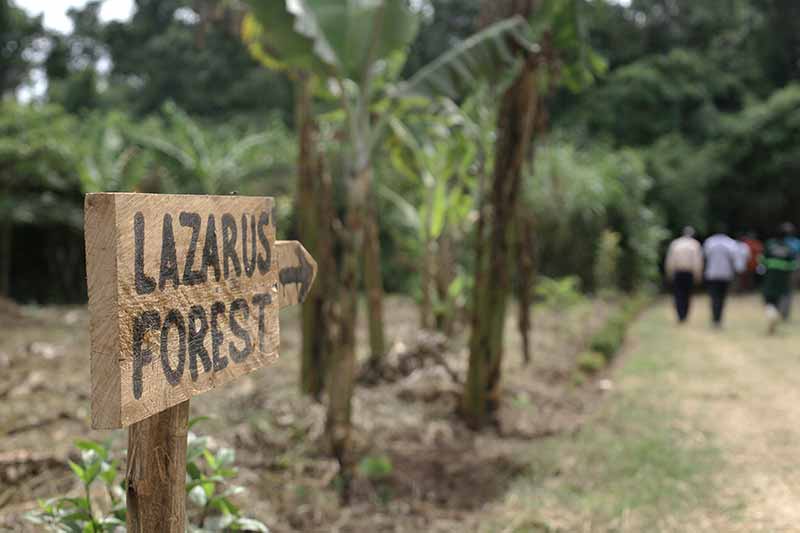
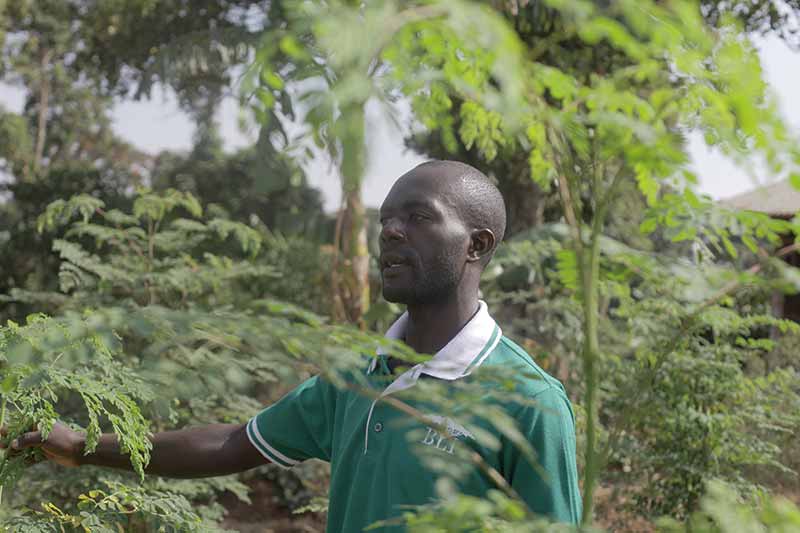
BLI started in 2017 with 95 acres but soon ran into land disputes common to the countryside. Two years later, Bishop Ssemogerere, then in charge of rural Luweero before his promotion to Kampala, offered more than 300 acres of land at Nandere Parish in his district that had been torn apart by war in the 1980s.
The bishop wanted his diocese to become the first Laudato si’ diocese on the continent and become a model for how to implement it in a rural setting. He also decided to have his seminarian priests learn at BLI as part of their formation. The fully organic campus is committed to producing zero waste.
The founders began creating the curriculum and the residential campus began construction in 2020. Progress was interrupted by the pandemic, which the following year took the life of Father Rweza, who was serving as BLI’s board chairman. Formal instruction continued for the first group that included 15 caretakers and 14 seminarians.
Seven caretakers from the first cohort stayed on as teachers, which they call incubators. After the two-year program, the graduates are expected to return to their communities to set up model farms and spread their enthusiasm for sustainable agriculture.
“COVID confirmed what we felt about the plight of poverty,” Father Katongole said. “With a lockdown, a number of people in the city literally starved. So people started walking back to the villages a hundred miles or so because they could at least have food in the rural communities. COVID also confirmed the environmental degradation with the floods, with the wetland destruction. It was another confirmation that we need to do something about the ecology.”
Integral Ecology
The commissioning ceremony on July 29 was designed to celebrate the long journey traveled to create BLI. Several Notre Dame students and leaders attended, including Keough School of Global Affairs Dean Scott Appleby and Aníbal Pérez-Liñán, the director of the Kellogg Institute for International Studies.
Staff members took the visitors, including members of the American and Ugandan BLI boards, on a tour of the campus to show off the integral ecology the caretakers had learned. Integral ecology is hard to define, but it refers to a holistic approach to the political, economic and environmental problems that plague the world, especially the poor. On a local level, it means integrating various systems that rely on each other for survival and rebuilding a sustainable connection between people and the land.
"creation" - Google News
September 26, 2022 at 02:00PM
https://ift.tt/8fnxhci
Restoring God's Creation - Notre Dame News
"creation" - Google News
https://ift.tt/nEoB59A
https://ift.tt/WH5Upcx
Bagikan Berita Ini
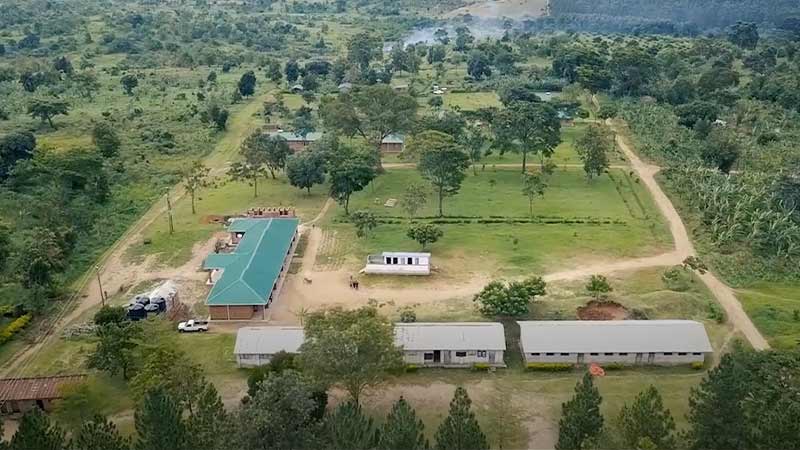














0 Response to "Restoring God's Creation - Notre Dame News"
Post a Comment